The IRS has reminded taxpayers that the deadline for making 2021 contributions to an individual retirement account is April 18, 2022. Also, April 1, 2022, is the last day for taxpayers who turned 72 in 2021 to begin taking required minimum distributions from a retirement account or plan.
Individual retirement arrangements (IRAs). An IRA is a personal savings plan that allows wage earners and self-employed taxpayers to set money aside for retirement. Generally, eligible taxpayers under age 50 may contribute up to $6,000 to an IRA for 2021. Eligible taxpayers who are 50 or older may contribute up to $7,000.
There are two types of IRAs: a “traditional” IRA and a Roth IRA. Contributions to a “traditional” IRA may be deductible up to the contribution limit or 100% of the taxpayer’s compensation (whichever is less). Contributions to a Roth IRA are not tax deductible, but qualified distributions are tax-free. Roth contributions may be limited based on the taxpayer’s filing status and income.
Eligible taxpayers who contribute to an IRA may also be able to claim the “Saver’s Credit.” The amount of this credit is based on the taxpayer’s contributions, adjusted gross income and filing status. The lower the taxpayer’s income, the higher the tax credit. Dependents and full-time students are not eligible for the Saver’s Credit.
Required minimum distributions (RMDs). Taxpayers are required to take RMDs from their retirement accounts every year beginning the year they reach age 72. However, taxpayers who reached age 72 after June 30, 2021, may take their first RMD as late as April 1, 2022.
Note. This special deadline only applies to the first year a taxpayer is required to take an RMD. For all later years, taxpayers must take their RMDs by December 31.
This means that taxpayers who turned 72 after June 30, 2021, and took their 2021 RMD on or before April 1, 2022, must take their 2022 RMD no later than December 31, 2022. Both distributions will be included in the taxpayer’s 2022 income.
Types of retirement plans that require RMDs. The RMD rules apply to traditional, SEP and SIMPLE IRAs and various workplace retirement plans, including 401(k), 403(b) and 457(b) plans. The RMD rules don’t apply to Roth IRAs.
Some taxpayers can delay RMDs. Taxpayers with workplace retirement plans aren’t required to take RMDs from their employer’s plan while they’re still working. These taxpayers can wait until April 1 of the year after they retire to start taking RMDs.
However, this RMD exception doesn’t apply to 5% owners of the business sponsoring the plan or to participants in SEP or SIMPLE IRA plans.
Source: Checkpoint Newsstand 3/30/22



